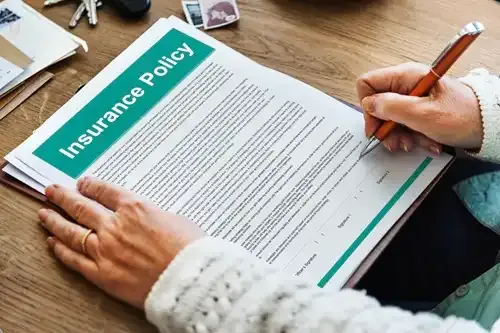Shopping cart
Your cart empty!
Terms of use dolor sit amet consectetur, adipisicing elit. Recusandae provident ullam aperiam quo ad non corrupti sit vel quam repellat ipsa quod sed, repellendus adipisci, ducimus ea modi odio assumenda.
Lorem ipsum dolor sit amet consectetur adipisicing elit. Sequi, cum esse possimus officiis amet ea voluptatibus libero! Dolorum assumenda esse, deserunt ipsum ad iusto! Praesentium error nobis tenetur at, quis nostrum facere excepturi architecto totam.
Lorem ipsum dolor sit amet consectetur adipisicing elit. Inventore, soluta alias eaque modi ipsum sint iusto fugiat vero velit rerum.
Sequi, cum esse possimus officiis amet ea voluptatibus libero! Dolorum assumenda esse, deserunt ipsum ad iusto! Praesentium error nobis tenetur at, quis nostrum facere excepturi architecto totam.
Lorem ipsum dolor sit amet consectetur adipisicing elit. Inventore, soluta alias eaque modi ipsum sint iusto fugiat vero velit rerum.
Dolor sit amet consectetur adipisicing elit. Sequi, cum esse possimus officiis amet ea voluptatibus libero! Dolorum assumenda esse, deserunt ipsum ad iusto! Praesentium error nobis tenetur at, quis nostrum facere excepturi architecto totam.
Lorem ipsum dolor sit amet consectetur adipisicing elit. Inventore, soluta alias eaque modi ipsum sint iusto fugiat vero velit rerum.
Sit amet consectetur adipisicing elit. Sequi, cum esse possimus officiis amet ea voluptatibus libero! Dolorum assumenda esse, deserunt ipsum ad iusto! Praesentium error nobis tenetur at, quis nostrum facere excepturi architecto totam.
Lorem ipsum dolor sit amet consectetur adipisicing elit. Inventore, soluta alias eaque modi ipsum sint iusto fugiat vero velit rerum.
Do you agree to our terms? Sign up

As claim rejections rise and official grievance channels frustrate, Indian policyholders are increasingly opting for private platforms to resolve disputes. Experts say regulatory reform and competent insurance brokers could restore trust in a system struggling to meet consumer expectations.
Official grievance systems like the IRDAI’s Bima Bharosa portal and the Insurance Ombudsman are proving slow and confusing for many policyholders. A lack of awareness, procedural hurdles, and limited support often leave consumers frustrated.
“Most policyholders struggle to understand their policy documents, present their cases effectively, or even know their rights. While official channels exist, they require strict procedures,” said Shilpa Arora, Co-Founder and COO at Insurance Samadhan.
Many customers only reach the insurer’s call center and often give up before contacting the Grievance Redressal Officer (GRO), leading them to seek private solutions.
Private grievance platforms like Insurance Samadhan are witnessing rapid growth. Between April–June 2025, the platform handled 4,004 disputes worth over Rs 75 crore, a 45% increase from the previous quarter. Health insurance complaints made up nearly two-thirds, followed by life and motor insurance.
Since its inception, Insurance Samadhan has resolved over 18,000 grievances, primarily involving health claim rejections and mis-selling.
In contrast, IRDAI’s Bima Bharosa processed over 2.1 lakh grievances in 2023–24, while the Insurance Ombudsman handled 52,575. Awareness remains low, and awards by the Ombudsman are binding only up to Rs 50 lakh, leaving higher-value claims unresolved.
Health insurance is a major flashpoint. In FY24, claim rejections reached Rs 26,000 crore, a 19% increase from the previous year. Many denials were due to technical lapses or alleged non-disclosure, creating financial and emotional stress for policyholders during medical crises.
Experts cite weak regulatory intervention as a major problem. Dr. KC Haridas, PhD (Insurance), FIII, and Composite Insurance Broker, explained:
“IRDAI often forwards complaints to the insurance company and asks for explanations. If the company’s explanation is deemed satisfactory, the matter is dropped. There is little active intervention.”
The complex grievance system—including the Ombudsman, IRDAI, and consumer courts—adds to the trust deficit. Dr. Haridas emphasized that working with a technically competent broker (not an aggregator) can help ensure claims are fairly settled.
“The premium does not increase for using a broker, as their commission is built into the premium. GST on brokerage is now zero. If a common health industry regulator, similar to RERA in real estate, is introduced, malpractice can be curbed, and consumer protection will improve.”
On the prospects of such a regulator, Dr. Haridas remained cautiously optimistic:
“It depends on pressure from insurers, intermediaries, and stakeholders on IRDAI. With a new chairperson recently appointed, there may be an opportunity to push for reform within the next 2–3 months.”
8
Published: Sep 26, 2025